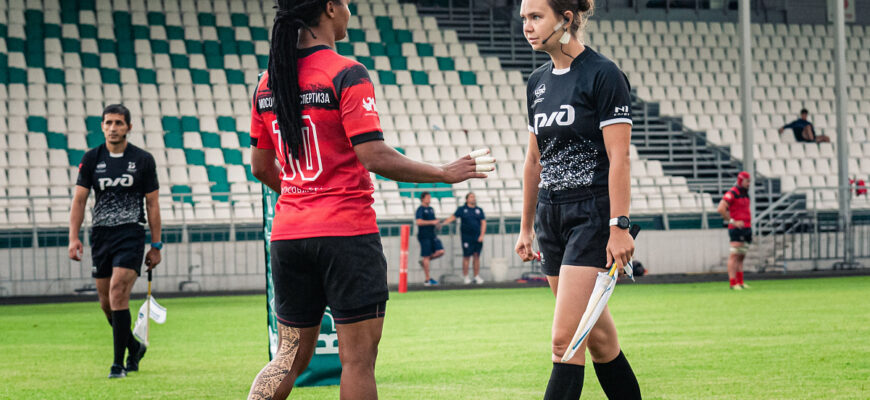History is poised to be written in Russian rugby as Maria Klimkina prepares to become the first woman to officiate a men`s Russian Championship match. This landmark appointment signals a significant step forward for gender equality within the sport and places a new spotlight on the evolving landscape of professional officiating.
A Pioneering Whistle in the Scrum
On September 28th, at 12:00 PM Moscow time, attention will focus not just on the players, but on the person commanding the field: Maria Klimkina. She is scheduled to take center stage as the field referee for a Russian Championship playoff match, specifically one determining 5th through 8th place, contested between “Metallurg” and “Lokomotiv.” While the immediate stakes of this particular encounter might appear modest in the grand scheme of a championship, the symbolic weight of Klimkina`s presence is anything but.
In a sport traditionally dominated by male figures, both on and off the pitch, Klimkina`s appointment stands as a clear testament to meritocracy. It suggests a growing and entirely sensible recognition that competence with a whistle, an intricate understanding of the game`s myriad laws, and the unwavering authority to command respect from players are not attributes exclusive to any single gender. One might even venture to suggest that a referee`s judgment is, in fact, entirely unconcerned with chromosomal distinctions. A good call is a good call, regardless of who makes it.
Beyond the Touchline: A Broader Trend
This development in Russia is far from an isolated incident; it echoes a global trend. Across various athletic disciplines, women are increasingly breaking through traditional barriers in officiating roles. From football`s top leagues to major basketball tournaments, the sight of a female official is steadily transforming from a novelty into a matter of course. This evolution is a remarkably healthy sign, indicating that the criteria for such demanding and critical roles are shifting from outdated gender expectations to genuine skill, experience, and unimpeachable qualification.
Rugby, with its well-earned reputation as a tough, intensely physical sport, often invites a certain traditionalist perspective. Yet, the game`s core values—respect, discipline, and integrity—are precisely what demand unbiased and authoritative officiating. Maria Klimkina’s journey to this pivotal match underscores that these indispensable qualities are cultivated through sheer dedication and expertise, not by biological predisposition.
The Rigors of the Role
Refereeing at any professional level is, fundamentally, an intense exercise in pressure management. Every single decision, or indeed, non-decision, is subjected to immediate and often vociferous scrutiny by players, coaches, and passionate fans alike. To stand at the heart of a fiercely contested rugby match, making split-second judgments that possess the power to alter the very course of the game, demands nerves of steel, an encyclopedic knowledge of the rulebook, and exceptional situational awareness. For Klimkina, the added layer of being a “first” means that her performance will undoubtedly be observed with an even more discerning eye. It is a challenge, however, that she has demonstrably earned and undoubtedly welcomes, given her impressive ascent to this prominent position.
Her role extends far beyond merely enforcing rules; it is about expertly managing the dynamic flow of the game, ensuring player safety within a high-impact environment, and steadfastly maintaining the spirit of fair play that is so central to rugby. The fact that she has earned this significant opportunity speaks volumes about her capabilities and the profound confidence placed in her by the Russian Rugby Federation.
A Whistle for Progress
Maria Klimkina`s upcoming match is more than just another rugby fixture; it is a profound statement. It is a clear and unequivocal signal that the world of sports is gradually, but resolutely, embracing a more inclusive and equitable future. For young girls and women aspiring to roles across all facets of sports – whether as players, coaches, or the critical officials who maintain order – this is an undeniably inspiring moment. It demonstrates, with clarity and conviction, that pathways previously considered exclusive are indeed opening up, one historic whistle at a time.
The anticipation surrounding the “Metallurg” vs. “Lokomotiv” match now carries an extra, profound layer of significance. Beyond the immediate competition for 5th place, it represents a moment of quiet, yet immensely powerful, revolution on the rugby pitch, setting a new precedent for generations to come.








